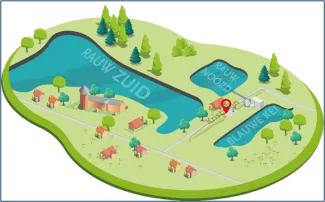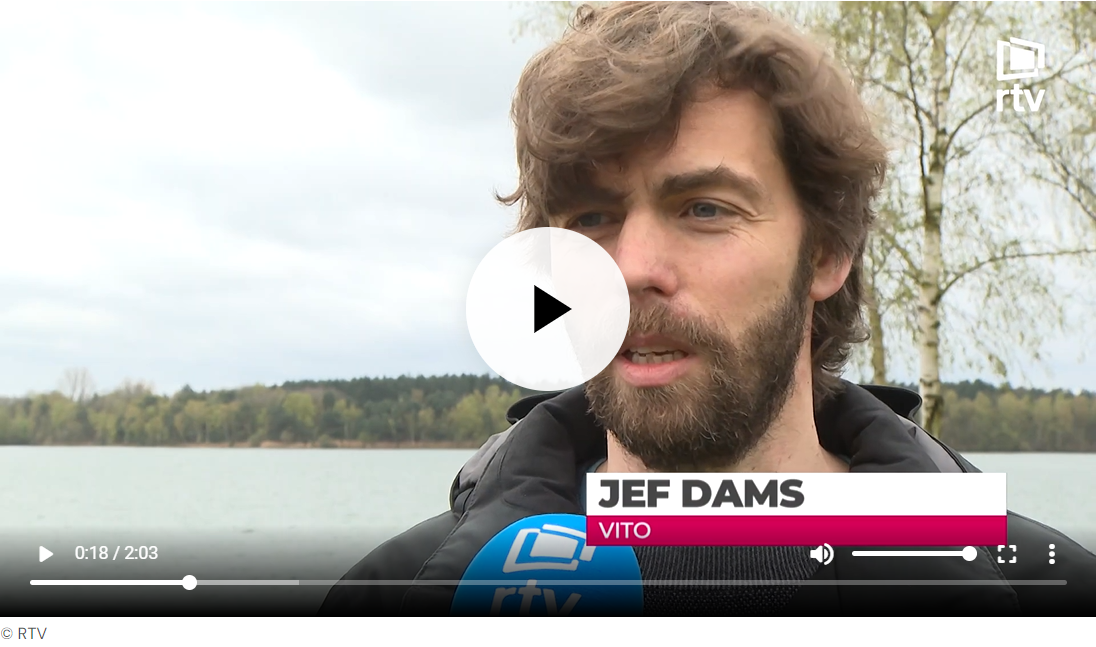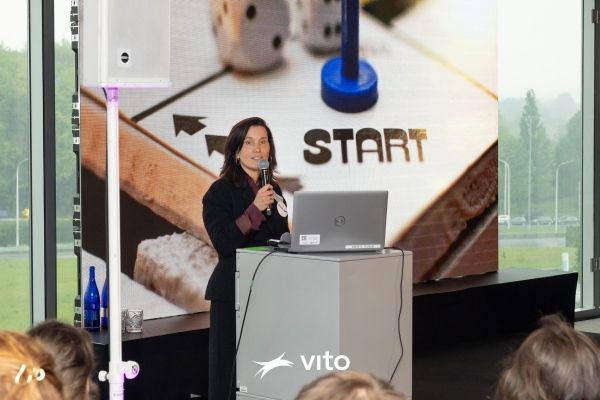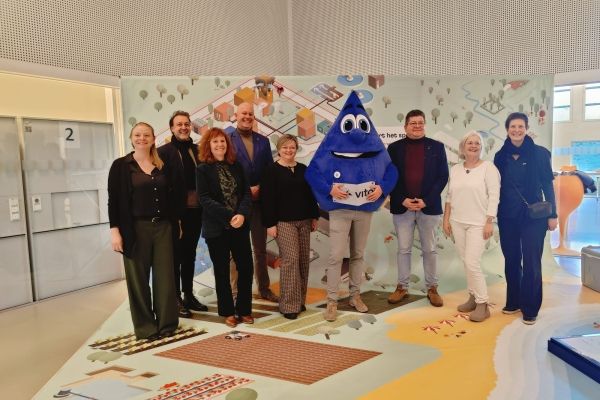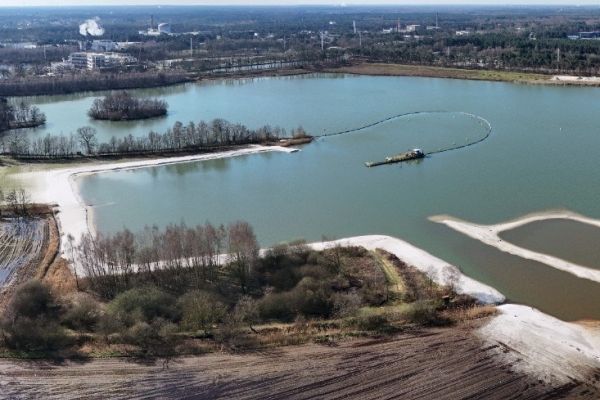Testing for drinking water production from the Rauw Well will continue for one year
MOL - The water from the Rauw Well in Mol may be a good source for drinking water production. To get a detailed understanding of the feasibility of permanent drinking water production, we, together with the water company Pidpa, have installed a pilot purification plant that will purify the water for a year.

Test setup
Water from Rauw North (adjacent to the Rauw Well) is pumped through an underground pipeline to the pilot purification plant, where it is purified into drinking water over the course of a year. To minimise environmental impact, the tests for drinking water production are conducted in a pilot purification container at the Blauwe Kei quarry.
Through these pilot tests, we will assess seasonal influences and determine the necessary purification steps to turn the water from Rauw into drinking water. The pilot container includes membrane filtration and activated carbon filtration, among other components.
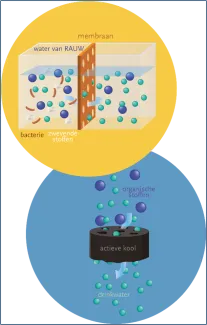
In de testopstelling wordt het water van Rauw gezuiverd met behulp van membraanfiltratie en actieve kool
The pilot tests will continue until February 2025. If the results are favorable, Pidpa is considering deploying water from Rauw on a larger scale for drinking water production in the next phase.
Vlaanderen WaterProof
The plans for the Rauw Well are part of the "Vlaanderen WaterProof" (WaterProof Flanders) project, which is one of the major initiatives of the Flemish Blue Deal program aimed at combating water scarcity and drought.
To improve water security in the Antwerp Kempen region during periods of prolonged drought, Vlaanderen WaterProof aims to implement smart water buffering in the sand extraction pits of Rauw (Mol) and Donk (Dessel). These pits are referred to as the "KlimaatPlassen" (Climate Pits).
A significant volume of water from the Rauw Well flows daily through the Canal Pit to the Dessel-Kwaadmechelen Canal and then towards the sea. The pilot tests will determine whether the overflow water could become an alternative source for drinking water production.
Importance of water buffering
Climate change increasingly leads to longer periods of drought, interspersed with heavy rain showers. The limited replenishment of groundwater - partly due to the focus on rapid water drainage - combined with the high demand for groundwater during dry periods, increases the pressure on our groundwater system.
Therefore, it is necessary to search for alternative water sources and buffers, also in the Mol-Dessel region.
Learn more about the KlimaatPlassen and Vlaanderen WaterProof at:




